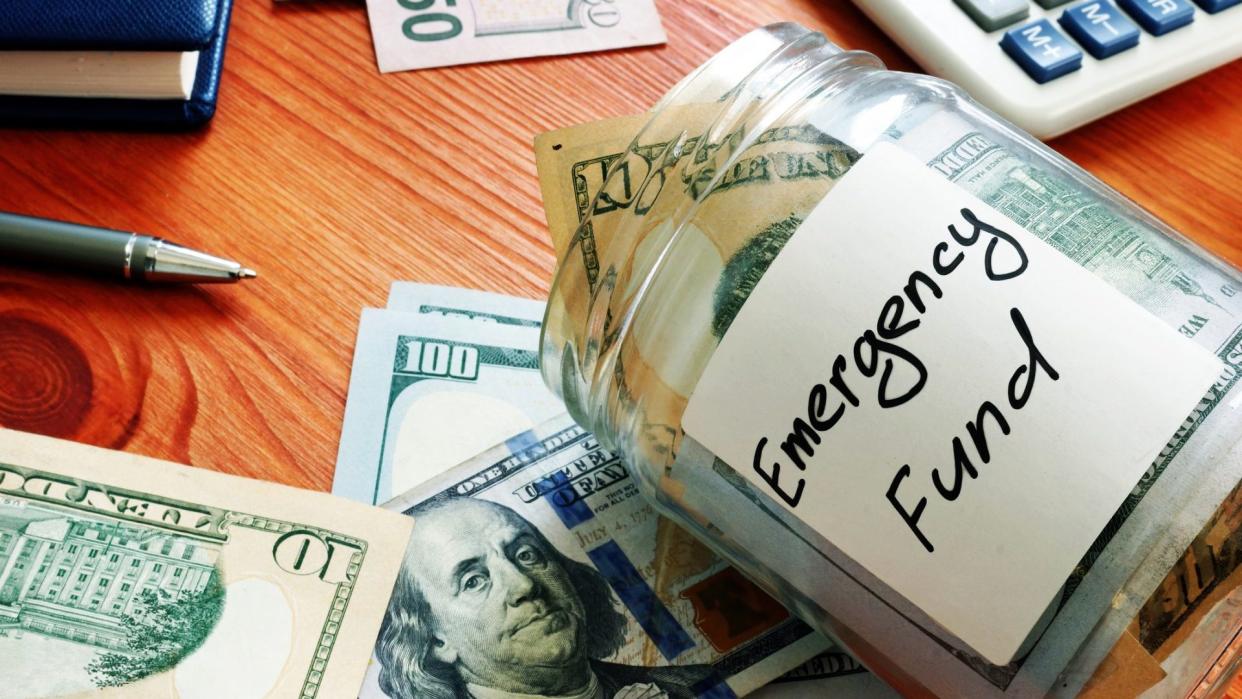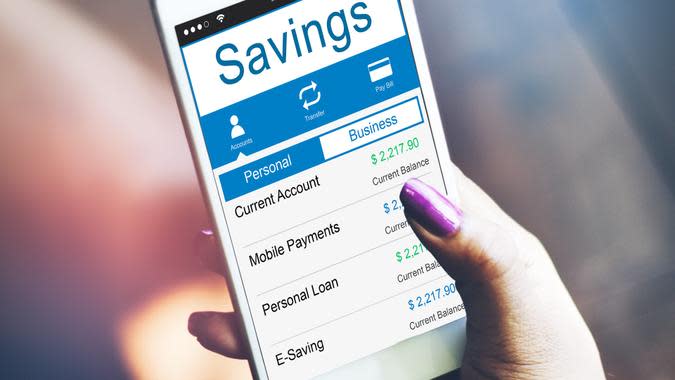5 Ways To Build Your Emergency Fund When Relying On Social Security

Many financial gurus, including Rachel Cruze and Dave Ramsey, suggest having at least three to six months’ worth of living expenses set aside for emergencies. The exact amount you need depends on factors like your household size, debt, and overall income and expenses. For some, three months might be more than enough. For others, it might be better to have a much bigger financial cushion.
If you’re living on Social Security, it might seem impossible to build an emergency fund. After all, the average Social Security paycheck is $1,907 (as of January 2024), and the cost of living is much higher in certain parts of the country.
Read Next: 2 Changes Are Coming to Social Security in 2025
Try This: 9 Easy Ways To Build Wealth That Will Last Through Retirement
Even so, there are always ways to save just a little more for those unexpected expenses. Here’s how to build an emergency fund when your primary source of income is Social Security.

Get a Side Gig or Part-Time Job
“It can be stressful relying on Social Security as your sole source of retirement income,” said John Gillet, CEO and founder of Gillet Agency. “Nonetheless, you’ve got to do the best with what you’ve got. And you need to be prepared for unforeseen circumstances and expenses.”
Even if you’d rather not work during retirement, having even a part-time job or side gig — however temporary — could make all the difference when you’re trying to save up for emergencies.
As long as you’re healthy and have the time and ability to do so, Gillet suggested getting a part-time job. “You can devote the lion’s share of the income from that part-time job to fund your emergency fund,” he said.
And if you don’t like the idea of having a job, you can always get a flexible side gig instead. This could be something simple like ride-sharing, food delivery or pet-sitting. Depending on your credentials, you could also go the route of consulting to make some extra cash while setting your own hours.
Before taking on any additional income, make sure it won’t affect your Social Security benefits. Or if it does, make sure the impact is small enough — and the earnings high enough — to make it worthwhile.
Check Out: 8 States To Move to If You Don’t Want To Pay Taxes on Social Security
For You: I’m Retired: My 3 Best Money Tips for Supplementing Social Security

Make a Budget
Whether you’re trying to save $1,000 or $10,000, one of the easiest ways to get started is to sit down and make a clear, realistic household budget. This is especially important if you’re living on a fixed income and have to pay for rising housing costs, inflation, medical costs and other day-to-day expenses.
“You can start by cutting as many of your nonessential expenses as possible,” said Erika Kullberg, attorney, personal finance expert and founder of Erika.com. “Look for unused (or unwanted) subscriptions, or try to cut back on things like dining out and expensive entertainment, if that’s something you spend on.”
Keep in mind that budgeting isn’t a “one and done” situation. You might have to make some adjustments as you go.
“Just because you set up your budget doesn’t mean it’s all done,” Kullberg said. “Checking in regularly and making sure you’re still on track will bring you the confidence and focus you need to really make your budget work long term.”
Explore More: 15 Things You Can Donate for Money

Use a High-Yield Savings Account
“If you are successful at creating an emergency fund with about three to six months’ worth of living expenses, then you should put the funds in an FDIC-insured high-yield savings account,” Gillet said. “Hopefully, this way your emergency fund can keep pace with inflation.”
Even if you have a smaller fund, using a high-yield savings account is still a good idea. Currently, the national rate cap on a high-yield savings account is 6.08%. Any interest earned on your account balance is essentially free money.
Say you already have $5,000 set aside for emergencies and you get a high-yield savings account with a 6.08% APY. Now, say you contribute an extra $200 a month into that account consistently for five years. Assuming the interest compounds monthly and nothing else changes, your total contributions will be about $17,000 and your account balance will be $20,267. That’s $3,267 in earned interest alone.

Take Advantage of Other Government Benefits
You can start receiving Social Security between the ages of 62 and 70, though you’ll need to wait until the full retirement age to receive the full benefit amount. Depending on your date of birth, your full retirement age is 66 or 67 years old.
Around this point in life, you may become eligible for other benefits.
“It’s also vital to maximize senior benefits,” said Dre Villeroy, CEO of Beyorch. “If you can get medications or other expenses covered through government assistance, it frees up more money for savings.”
Look into other senior benefits too, not just government ones. This could be a senior savings program at your local grocery store. Or it could be discounts on other everyday services. Whatever it might be, every little bit saved is a little bit more of a financial buffer between you and the unexpected.
“Focus on keeping your funds in liquid accounts, like an HYSA, so you can access the money in emergencies without penalty,” Villeroy said.

Sell What You Don’t Need
If you have quite the collection of valuables that you don’t need, use or even want, consider selling some — or all — of them. Any proceeds can go straight into your emergency fund.
“You’d be surprised how much you can get for the items you aren’t using,” Gillet said. “Think of it this way, if you had an emergency like your car transmission needing to be replaced, will the mechanic accept a hunting rifle or collectible antique watch as payment? Probably not. You need to convert any unused item of value into cash to be used as legal tender for these emergencies.”
You shouldn’t get rid of things that you need or that bring you true joy. But if it’s something that’s collecting dust or taking up space, selling it might be your best option.
More From GOBankingRates
9 Moves For Building Lasting Wealth: What Smart Americans Are Doing Right
7 Best New Items To Buy at Dollar Tree Ahead of Halloween 2024
The Average Consumer Has $6,329 in Credit Card Debt. Here's One Smart Way to Get Out
This article originally appeared on GOBankingRates.com: 5 Ways To Build Your Emergency Fund When Relying On Social Security
